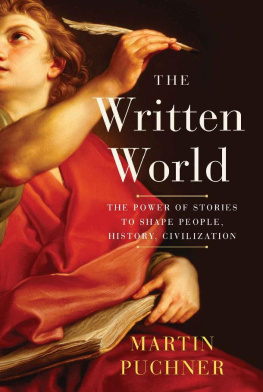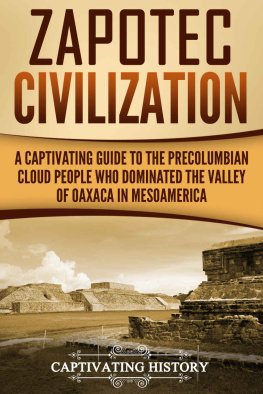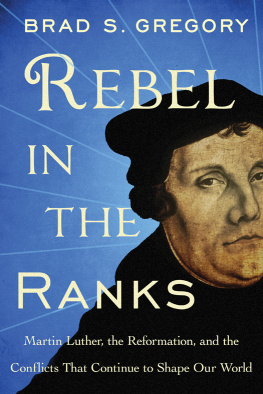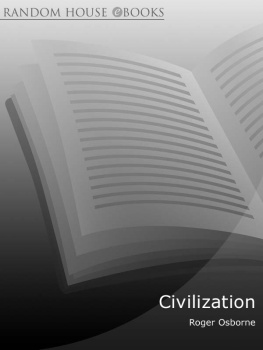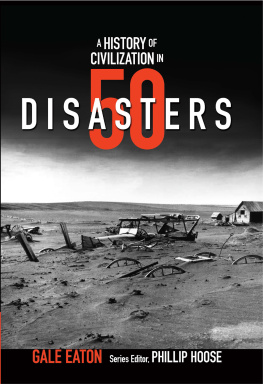Martin Puchner - The Written World: The Power of Stories to Shape People, History, Civilization
Here you can read online Martin Puchner - The Written World: The Power of Stories to Shape People, History, Civilization full text of the book (entire story) in english for free. Download pdf and epub, get meaning, cover and reviews about this ebook. year: 2017, publisher: Random House Publishing Group, genre: Non-fiction. Description of the work, (preface) as well as reviews are available. Best literature library LitArk.com created for fans of good reading and offers a wide selection of genres:
Romance novel
Science fiction
Adventure
Detective
Science
History
Home and family
Prose
Art
Politics
Computer
Non-fiction
Religion
Business
Children
Humor
Choose a favorite category and find really read worthwhile books. Enjoy immersion in the world of imagination, feel the emotions of the characters or learn something new for yourself, make an fascinating discovery.
- Book:The Written World: The Power of Stories to Shape People, History, Civilization
- Author:
- Publisher:Random House Publishing Group
- Genre:
- Year:2017
- Rating:4 / 5
- Favourites:Add to favourites
- Your mark:
- 80
- 1
- 2
- 3
- 4
- 5
The Written World: The Power of Stories to Shape People, History, Civilization: summary, description and annotation
We offer to read an annotation, description, summary or preface (depends on what the author of the book "The Written World: The Power of Stories to Shape People, History, Civilization" wrote himself). If you haven't found the necessary information about the book — write in the comments, we will try to find it.
The Written World: The Power of Stories to Shape People, History, Civilization — read online for free the complete book (whole text) full work
Below is the text of the book, divided by pages. System saving the place of the last page read, allows you to conveniently read the book "The Written World: The Power of Stories to Shape People, History, Civilization" online for free, without having to search again every time where you left off. Put a bookmark, and you can go to the page where you finished reading at any time.
Font size:
Interval:
Bookmark:


Copyright 2017 by Martin Puchner
Map copyright 2017 by David Lindroth Inc.
All rights reserved.
Published in the United States by Random House, an imprint and division of Penguin Random House LLC, New York.
R ANDOM H OUSE and the H OUSE colophon are registered trademarks of Penguin Random House LLC.
Illustration credits can be found beginning on .
L IBRARY OF C ONGRESS C ATALOGING-IN- P UBLICATION D ATA
N AMES: Puchner, Martin, author. T ITLE: The written world : the power of stories to shape people, history, civilization / Martin Puchner. D ESCRIPTION: New York : Random House, 2017. | Includes index. I DENTIFIERS: LCCN 2017002438| ISBN 9780812998931 (hardback) | ISBN 9780812998948 (ebook) S UBJECTS: LCSH: Literature and society. | LiteratureHistory and criticism. | Books and reading. | BISAC: HISTORY / Civilization. | BIOGRAPHY & AUTOBIOGRAPHY / Historical. | LITERARY CRITICISM / Books & Reading. C LASSIFICATION: LCC PN51 .P79 2017 | DDC 809/.93358dc23 LC record available at lccn.loc.gov/2017002438
Ebook ISBN9780812998948
randomhousebooks.com
Title-page art map iStock
Book design by Barbara M. Bachman, adapted for ebook
Cover design: Anna Bauer Carr
Cover painting: Pompeo Batoni, Saint John the Evangelist (Iliffe Collection, Basildon Park; National Trust Photo Library/Art Resource, N.Y.)
v4.1
ep

S ometimes I try to imagine a world without literature. I would miss books on airplanes. Bookstores and libraries would have a lot of extra shelf space (and my own bookshelves would no longer be overflowing). The publishing industry wouldnt exist as we know it, nor would Amazon, and thered be nothing on my bedside table when I cant sleep at night.
All this would be unfortunate, but it barely scratches the surface of what would be lost if literature had never existed, if stories were told only orally and had never been written down. Such a world is almost impossible for us to imagine. Our sense of history, of the rise and fall of empires and nations, would be completely different. Most philosophical and political ideas would never have come into existence, because the literature that gave rise to them wouldnt have been written. Almost all religious beliefs would disappear along with the scriptures in which they were expressed.
Literature isnt just for book lovers. Ever since it emerged four thousand years ago, it has shaped the lives of most humans on planet Earth.
As the three astronauts aboard Apollo 8 were to find.
ALRIGHT, APOLLO 8. YOU are go for TLI. Over.
Roger. We understand we are go for TLI.
By late 1968, circling the earth was no longer a novelty. Apollo 8, the latest American mission, had just spent two hours and twenty-seven minutes in terrestrial orbit. There had been no major incidents. But Frank Frederick Borman II, James Arthur Lovell, Jr., and William Alison Anders were on edge. Their ship was about to attempt a new maneuver, translunar injection, TLI. They were pointing away from Earth, ready to shoot straight into space. Their destination was the moon. At any moment, they would speed up to 24,207 mph, faster than anyone had ever traveled before.
The mission of Apollo 8 was relatively simple. They wouldnt land on the moon; they didnt even have a landing vehicle on board. They were to see what the moon was like, identify an appropriate landing site for a future Apollo mission, and bring back photos and film material that experts could study.
TLI, the translunar injection that would power their flight to the moon, proceeded as planned. Apollo 8 sped up and took the plunge into space. The farther they went, the better they could see what no one had ever seen before: the earth.
Borman interrupted procedures to call out the landmasses that were rotating below him: Florida; the Cape; Africa. He could see them all at once. He was the first human ever to see the earth as a single globe. Anders took the picture that would capture this new sight, Earth rising above the surface of the moon.
As the earth was getting smaller and smaller and the moon bigger and bigger, the astronauts had trouble capturing everything on camera. Ground control realized that the astronauts needed to rely on a simpler technology: the spoken word. We would like you, if possible, to go into as much of a detailed description as you poets can.

PHOTOGRAPH OF EARTH RISING ABOVE THE MOON, TAKEN BY APOLLO 8 CREW MEMBER BILL ANDERS ON DECEMBER 24, 1968, COMMONLY KNOWN AS EARTHRISE.
Becoming poets was a task for which the astronauts training hadnt prepared them and to which they brought no particular skills. They had made it through the ruthless selection process of NASA because they were the best fighter pilots and knew something about rocket science. Anders had attended the Naval Academy and then joined the Air Force, where he had served as an all-weather interceptor at Air Defense Command in California and Iceland. But now he needed to come up with wordsthe right words.
He singled out the lunar sunrises and sunsets. These in particular bring out the stark nature of the terrain, he said, and the long shadows really bring out the relief that is here and hard to see at this very bright surface that were going over right now. Anders was painting a stark picture of bright light hitting the hard surface of the moon and making precise shadowsperhaps his job as all-weather interceptor helped. He was becoming a poet in the great American tradition of imagism, perfectly suited to a stark and brilliant thing like the moon.
Lovell had also trained at the Naval Academy, after which he had joined the Navy; like the others, he had spent most of his life on air bases. In space, he showed a predilection for another school of poetry: the sublime. The vast loneliness up here of the moon is awe-inspiring, he ventured. Philosophers had reflected on the awe that nature could inspire; waterfalls, storms, anything grand, too grand to be neatly captured and framed, would serve. But they could not have imagined what it would be like to be out there, in space. It was the ultimate sublime, the awe-inspiring experience of vastness that was certain to dwarf them, crush them, make them feel small. Just as these philosophers had predicted, this experience made Lovell relish the safety of home. It makes you realize just what you have back there on earth. The earth from here is a grand oasis in the big vastness of space. Dr. Wernher von Braun, who had built the rocket for Apollo 8, must have understood; he liked to say that a space scientist is an engineer who loves poetry.
Finally, there was Borman, their commanding officer. Borman had graduated from the United States Military Academy at West Point, entered the Air Force, and become a fighter pilot. On board Apollo 8, he waxed eloquent: Its a vast, lonely, forbidding-type existence, or expanse of nothing. Lonely, forbidding, existence, nothing: It sounded as if Borman had been hanging out on the Left Bank reading Jean-Paul Sartre.
Having become space poets, the three astronauts had arrived at their final destination: They were circling the moon. With every rotation, Apollo 8 disappeared behind the moon, where no one had ever been before, and each time, they lost radio contact with Earth. There was much nail-biting in Houston, the Texas headquarters of ground control, during their first fifty-minute absence. Apollo 8, Houston. Over. Apollo 8, Houston. Over. Ground control kept calling, sending radio waves into space, but with no response. One, two, three, four, five, six times. The seconds, the minutes passed. Then, on the seventh try, they got an answer: Go ahead, Houston. This is Apollo 8. Burn complete. Ground control was audibly relieved and exclaimed: Good to hear your voice!
Font size:
Interval:
Bookmark:
Similar books «The Written World: The Power of Stories to Shape People, History, Civilization»
Look at similar books to The Written World: The Power of Stories to Shape People, History, Civilization. We have selected literature similar in name and meaning in the hope of providing readers with more options to find new, interesting, not yet read works.
Discussion, reviews of the book The Written World: The Power of Stories to Shape People, History, Civilization and just readers' own opinions. Leave your comments, write what you think about the work, its meaning or the main characters. Specify what exactly you liked and what you didn't like, and why you think so.

